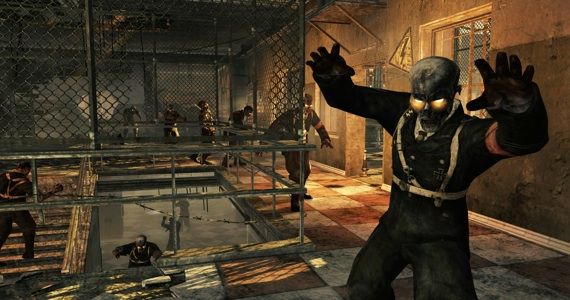Only a few days after Nintendo slashed prices on the underperforming 3DS handheld, Todd Howard, the director behind Skyrim (one of the most highly-anticipated titles of the year), went on-record to discuss the inflated cost of gaming - arguing that the industry should offer a staggered set of price points to account for the amount of content offered.
Of course, Howard firmly believes that his Elder Scrolls sequel, Skyrim, is well-worth the normal $60 buy-in.
Speaking with PSM3 magazine, the director laid-out his reasoning for a staggered pricing system. Unsurprisingly, the idea makes a lot of sense.
"I've thought for a long time that games are too expensive... I don't put us in that category of course - for what we give you, for sixty bucks or however many 'quid' it is... But I do think industry-wide we would benefit from more games out at $19 or $29. I would try more games. Because I'm not going to try a game for $60. It's a tough decision. That's why people read reviews and previews, because it's not only a money decision, it's a time-investment decision. It's not like going to a movie."
Given reports that Skyrim will offer an unlimited number of dragons to fight, hardcore gameplay mechanics, and mod tools right after launch, it's difficult to argue with Howard's confidence in his own price point. However, it's even harder to imagine that the developers behind the seemingly endless ocean of motion control shovelware, movie tie-ins, and copycat budget titles could genuinely defend the price tags on their games.
Of course, pricing isn't typically set by the developers themselves - it's the publishers that control the way a game is positioned in the marketplace, that's why Howard suggests that industry leaders need to come together - to discuss the overarching issues ahead of the industry:
"From September to December there are three new blockbusters every week, and consumers just can't afford to buy all that. I feel all the big video game companies need to join together in a worldwide summit to discuss the future of our industry. I think we have to pull our thoughts together."
However, with a teared pricing structure, there's no doubt that some publishers would also swing the idea in an opposite direction - and charge even more for their games out the gate. Both Activision and Capcom have become especially adept at justifying costly post-launch DLC as well as recommissioning deluxe versions of year-old titles, respectively.
Additionally, while the Call of Duty Elite program is definitely optional, there's no question that the intention is to find a way to milk even more money out of each game purchase - since Activision can't raise the price of the actual discs (or count on pumping out a steady stream of DLC every single month). As a result, some gamers are already buying-into the tiered price system but while they pay premiums for certain franchise content, there are very few titles that offer a counter-balance - less-ambitious projects that cost less to purchase (along Howard's $19 and $29 idea).
No doubt some gamers will point to digital releases on Xbox Live Arcade and the PlayStation Network (as well as the Apple App Store), as a place where the tiered model is alive and well. Even Howard thinks the industry is making some consumer-friendly strides in the digital markets:
"I think the good news is that in certain markets - PC, iPhone, mobile - we can see prices coming down."
However, prices on XBLA and PSN are steadily on the rise and, in the case of the App Store, very few titles priced above $1.99 feature the same kind of success as bite-size experiences like Angry Birds and Cut the Rope - so there's little incentive for many larger game companies to price their games competitively in the store. EA and Activision titles are among the most expensive in the App Store, and while they do offer better graphics and familiar IP's, it's hard to argue that the overall value of the titles actually trumps what independent developers are selling for $1.99. As a result, none of these options are still representative of the tiered value-equation that Howard is purposing - quality experiences that can appeal to hardcore gamers but are priced based-on what they offer, not an overarching industry standard.
Hopefully, as the industry continues to grow, developers and publishers will soon be able to come together - to truly forge a model that is both consumer-friendly and financially beneficial to business. Game companies, at least in some cases, are raking in money but, given the amount of bargain bins over-flowing with titles at any given Target, Best Buy, or GameStop, it's obvious there's room for improvement - even with respect to powerhouses like Activision.
Follow me on Twitter @benkendrick and let us know which upcoming games you think actually deserve a $60 price point.
The Elder Scrolls V: Skyrim will be released on November 11 for the Xbox 360, PS3 and PC.
Source: PSM3 [via CVG]


